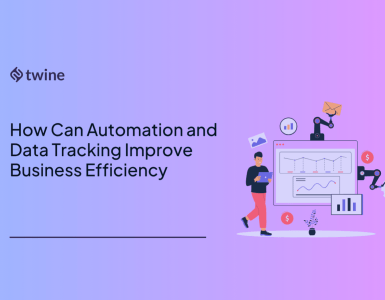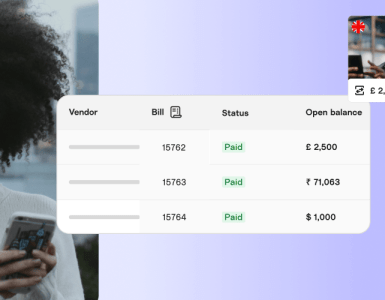Today’s pro con topic is hiring freelancers – what are the pros and what are the cons?
Well, freelancing is a very delicate and complex art, so there are many caveats to hiring and working with a freelancer. At Twine, we get to see all the benefits of freelancing, but we’re also aware there can be cons for the less fortunate clients.
Are you thinking about hiring a freelancer but aren’t sure of the differences between freelance vs full time? Sat back, wondering, is freelancing worth it? Luckily for you, we’ve gotten this article together, so you can get the low down on the pros and cons of freelancing.
Pros

Lower Costs
Hiring freelancers can be much more cost-effective than hiring full-time staff.
Freelancers work from home and therefore use their own equipment, their own space, their own mugs of tea, etc. With a full-time employee, you will be expected to pay all of this. Just by hiring a freelancer pro to get the job done, you can expect to save 20 – 30% annually.
Not to mention the additional employee costs like benefits, health insurance, and pensions! We know we’d like to save a few coins here and there…
Highly Skilled
When hiring a full-time employee, you’re likely to be looking for someone with a broad range of skills, who can also multi-task whenever necessary.
Whereas, if you hire a freelancer for a project, you’ll be getting someone who is highly skilled in that specific area. Working freelance takes years and years to master their profession and skillset, so you know you truly are dealing with the best of the best.
Freelancers also don’t require constant supervision like a regular employee, and may have professional tools specifically designed for the project.
Risk Reduction
If you want to create a minimum viable product, or try a new project, then hiring freelancers is a much lower risk.
This is simply because you won’t have any contractual commitments outside of the delivery of the project, and therefore don’t have to provide any employer benefits.
New Perspective
Freelancers aren’t involved in the day-to-day running of the company, so can provide a fresh perspective.
A full-time employee, on the other hand, may have preconceived ideas about the company that could hinder (rather than help) the project as a whole.
A freelancing expert could take one look at your project, and your company, and know exactly what’s needed. You’re then looking at a finished product that’s considerably more effective and engaging.
More Flexibility
Freelancers also provide a LOT more flexibility than full-time employees.
You can hire a freelancer if and when you need to, instead of having them locked into a full-time contract. What do you do when your full-time employee isn’t working on anything? Well, in that case, they might be being paid to do nothing.
On the other hand, hire a freelancer, and you can balance your costs based on the workload, rather than having to pay a fixed salary unnecessarily.
Global Reach
Another solid pro of hiring freelancers is that there are no geographical limitations, meaning that you have access to a global talent pool, rather than sticking to a 5-mile radius.
A freelancer doesn’t need to step into the office, they can work from home, so you’re opening yourself up to a limitless amount of potential candidates. With so many freelancers out there, you’re certain to find the best person for the job.
Increased Employee Productivity
Having freelancers on board won’t just benefit you as the boss, it may also benefit your staff.
Freelancers can work on projects that your permanent employees may find hard to squeeze into their schedule. Lighten their load and you have yourself happier employees with more manageable workloads, and not to mention a boosted level of productivity in the workplace – score.
Terms Are Clearly Laid Out
When you make a contract with a freelancer, it clearly lays out all of the terms of service. This includes any work to be completed, deadlines, revision periods, etc. It’s also made clear that if your freelancer breaks any of the terms of the contract, you have the right to fire them immediately.
With an employee, the reasons for firing – concerning work productivity, general tardiness, or any other negative influence, can be a complete grey area. The clarity of the freelancer-client working relationship allows everyone to know exactly where they stand.
Cons

Availability
It wouldn’t be a good pro con topic if we couldn’t name a few cons, right?
Freelancer availability is definitely a tricky one. Freelancers often have multiple projects at the same time, so needing them at short notice can be fairly difficult. Unless you gave them plenty of notice, of course!
There have been cases of a few freelancers leaving mid-project to work on something more lucrative, but (and we can’t stress this enough), this isn’t a behavior we advocate for on Twine. If you’re unfortunate, and you do come across a freelancer who does this, please let the Support Team know.
Relationship Building
Simply put, you’ll spend a lot more time with in-house employees than you will with freelancers. The full-time staff gets to see the ins and outs of the company – not to mention attend all of the socials!
This puts your regular, full-time employees at an advantage over freelancers when it comes to understanding the intricacies and dynamics of the workplace.
Lack of Investment In The Company
Freelancers will want to deliver the best result possible, (not to mention, work with you again), but your company’s individual success is not their priority.
A full-time employee is likely to feel a higher level of commitment to your organization, and therefore will probably be more likely to put in the extra hours, or take the time out.
Confidentiality Issues
If you require confidentiality on the details of a project, then it’s much riskier to hire freelancers rather than permanent employees.
You can, of course, insist that your freelancer signs a non-disclosure agreement, but in terms of a pro con topic, it’s up to you to weigh it all up.
While giving freelancers the tools to do their jobs, provisioning access to company platforms – through access lifecycle management – is essential to protect data security.
Less Control
Strictly speaking, you do have less control over a freelancer than an in-house employee.
This isn’t because freelancers can take your project and do whatever they want, but because you can’t constantly supervise a freelancer’s work and enforce when/ where/how long they work. A freelancer might choose to perform the work outside of business hours, in times when you’re not able to monitor their progress. A full-time employee, on the other hand, you get to make those decisions when you hire them.
However, if you plan well, establish milestones, and set clear deadlines – you’ll have yourself a clear and concise contract to work to, that mimics a full-time employees’ contract rather nicely.
Training and Supervision
How much supervision and training does the project require? Will it be a long and extensive project.
Well, if so, it might make more sense to invest in a full-time employee. Freelancers are best used when you need a quick job doing and not sure how to tackle it, but if you’re planning on starting an 8-month business venture, perhaps a freelance professional isn’t the right choice…
And there you have it! That was our brutal – but honest – Twine review on the pro con topic of hiring freelancers. What do you think? If we haven’t managed to convince you already, freelancing employment is an ever-growing trend and you, as a business, should take advantage.
If there are any other pros and cons you think we’ve missed then please add them to the comments below.



